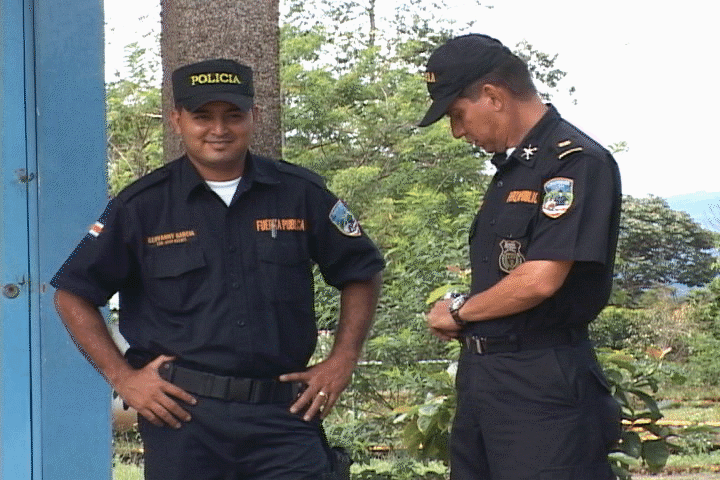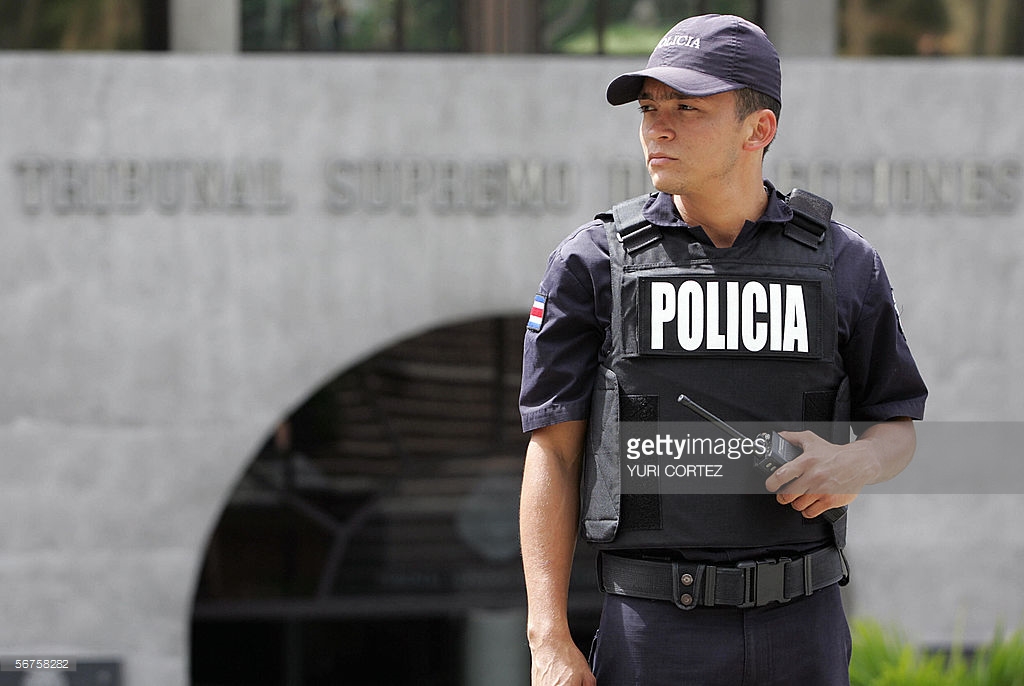Costa Rica News – Costa Rica has decided to drastically shorten the selection and training process of its police officers, a measure that will quickly increase police presence in troubled areas but may negatively impact the quality of the police over the long term.
 Public Security Minister Gustavo Mata said that an additional 1,200 officers would graduate from the police academy by the end of 2017, reported La Nación. Speaking at a press conference on January 30, the official added that 25 billion colones (roughly $45 million) would be spent on the new program that will eventually train a total of 1,500 recruits.
Public Security Minister Gustavo Mata said that an additional 1,200 officers would graduate from the police academy by the end of 2017, reported La Nación. Speaking at a press conference on January 30, the official added that 25 billion colones (roughly $45 million) would be spent on the new program that will eventually train a total of 1,500 recruits.
In order to reach that number, Mata announced the police will accelerate the process with the graduation of 300 new police every trimester.
Psychological and medical tests as well as background checks on the candidates will now be done within a month instead of four.
Following the selection, the recruits will train for two months before being sent to patrol in less conflictive areas for 60 days. They will then have two final months of training at the academy before officially graduating.
In addition to the former four-month selection period, previous recruits trained for nine consecutive months before being sent on active duty. In sum, the process will now take 7 months instead of the 13 months it used to take.
Mata argued that it was unnecessary to wait more than a year before sending new recruits on the streets because the country was pressed by growing insecurity.
La Nación also reported that Bernardita Marín, Mata’s deputy, asserted that the quality of the force will not be affected because the training will focus on core courses such as weapons handling.
InSight Crime Analysis
The decision to accelerate the graduation process will rapidly increase police presence on the streets, but its security impact on the long term remains much more debatable.
By rapidly sending new recruits to less crime-ridden areas, the government could quickly free up human resources and thus increase the presence of veteran officers in areas affected by organized crime.
Costa Rica’s murder rate has roughly doubled over the past 15 years, and 2016 broke homicide records. Homegrown criminal structures also appear to be taking an increased role in transnational drug trafficking.
But the absence of a thorough vetting process for police candidates could weaken the institution. By circumventing the selection and filtering process of candidates, the police force is opening itself up to ineptitude and corruption.
Moreover, the shortened process could also increase the risk of police abuses towards citizens. Studies have shown that it is necessary for police officers to receive a comprehensive — and thus time consuming — training, which should include legal courses such as human rights and the legitimate use of force.
by Tristan Clavel, Insight Crime

